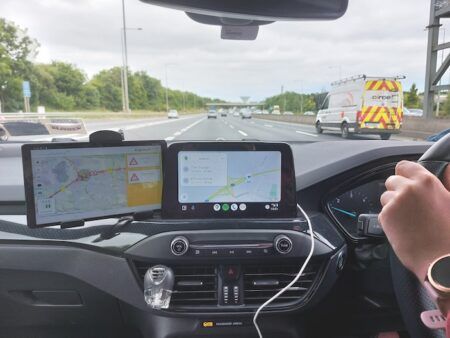As part of its long-term Industrial Strategy, the UK government has confirmed £12.1m (US$15.9m) of new funding for six projects working on simulation and modeling to aid the development of connected and autonomous vehicles (CAVs).
The funding is part of the government’s ambition to help reduce greenhouse gas emissions, make travel safer, improve accessibility, and present enormous economic opportunities for the UK through the widespread use of CAVs.
The UK’s Center for Connected and Autonomous Vehicles (CCAV), through Innovate UK, launched a collaborative R&D competition in January 2018 for holistic CAV simulation and modeling capabilities. These new abilities will be essential for developing, testing and proving the safety of the CAVs. Following assessments by independent experts, these projects have been awarded funding:
• OmniCAV – Latent Logic, a young UK startup specializing in the simulation of realistic actors using AI (artificial intelligence) within virtual environments, is leading a consortium of 11 to develop a testing certification tool that can be used by accreditation bodies, insurers and manufacturers to accelerate the development of CAVs. Latent Logic; Aimsun Limited; Arcadis Consulting (UK) Limited; Arrival Limited; Eui Limited; Ordnance Survey Limited; Oxfordshire County Council; Thatcham Research; UKAEA; University of Warwick; XPI Simulation Limited.
• COSMOS – Jaguar Land Rover (JLR) is leading a consortium of three in the development of a simulation capability to reduce sensor interference in traffic and therefore improve safety. JLR; Horiba Mira Limited; University of Birmingham.
• VeriCAV – Horiba Mira is leading a consortium of eight in the development of a simulation test system with automated generation of scenarios and realistic virtual actors. Horiba Mira; Aimsun Limited; JLR; Latent Logic; Propelmee Limited; Saic Motor UK Technical Centre Limited; Transport Systems Catapult (TSC); University Of Leeds.
• D-RISK – aiPod, a USA-based startup, is leading a consortium of five organizations to develop a novel scenario generator incorporating realistic edge-case scenarios, in order to virtually validate a CAV’s decision making and qualify risk. aiPod; Claytex Services Limited; Dg Cities Limited; Imperial College London; Transport for London Finance Limited.
• Simulation of Complex Off-Road Environments – Dynium Robot, a young startup from Cambridge, is leading a consortium of three to develop off-road simulation environments that will reduce the cost of deploying autonomous vehicles on farms, in order to help smaller farms compete with larger ones that benefit from economies of scale. Dynium Robot; University College London.
• Sim4SafeCAV – JLR is leading a consortium of three in a bid to combine simulation with safety for SAE level 4 autonomous vehicles to significantly enhance safety analysis and use simulation to demonstrate achievement of safety targets. JLR; Kangaloosh Limited; University of Warwick.
The government has also announced that Ian Robertson, a former board member at BMW, has been appointed as Business Champion to help advise, shape and develop its Future of Mobility Grand Challenge. Robertson will be supported by an Advisory Council made up of Isobel Dedring, Tracy Westall and Stan Boland. The team will also work on the Future of Urban Mobility Strategy, which is due to be published by the end of the year.




